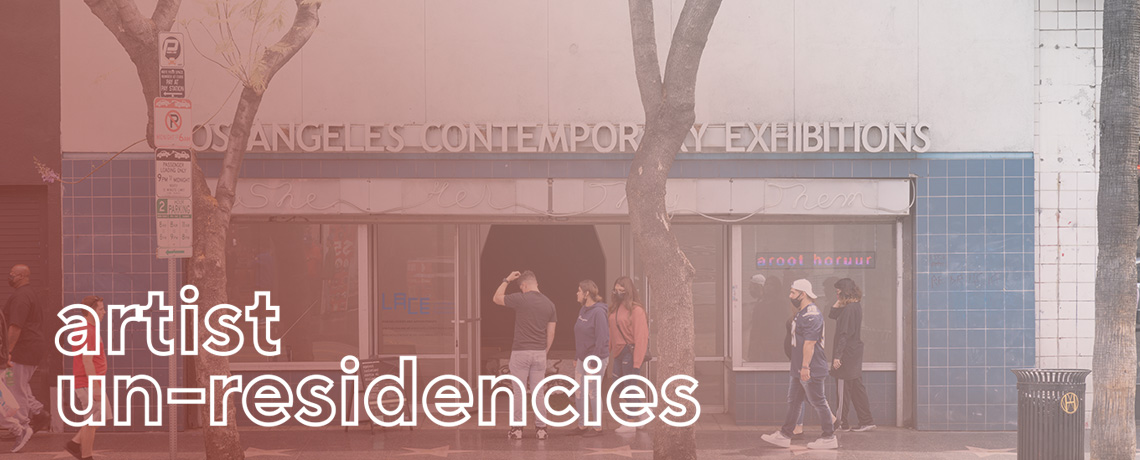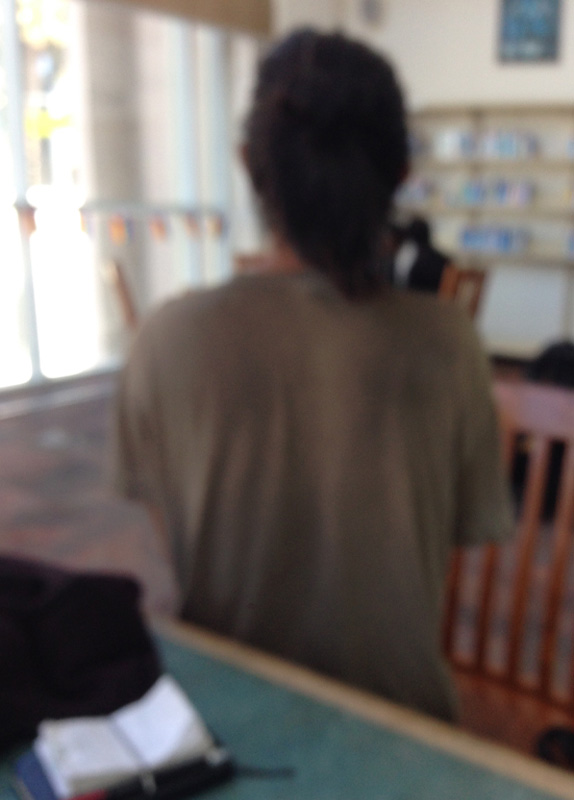
Thinh Nguyen: un-residency
July 2022-December 2022
 Our first un-residency artist is Thinh Nguyen (b. 1984, Bảo An, Vietnam.), a cultural provocateur and critic who works to investigate the intersections of cultural values.
Our first un-residency artist is Thinh Nguyen (b. 1984, Bảo An, Vietnam.), a cultural provocateur and critic who works to investigate the intersections of cultural values.
Nguyen is expanding on their current and ongoing project/s relating to the notion of social-cultural transition/ing. Their sense of belonging is located in a collection of post-consumer materials through their experience of homelessness.
Utilizing various media and post-consumer materials, they explore and expose oppressive socio-political power structures within those values. Nguyen performed and exhibited nationally and internationally, most recently at Freewaves, The Mistake Room, The Hammer Museum, REDCAT, Los Angeles Contemporary Exhibitions, and Contemporary Irish Art Center Los Angeles. Their work has been written about in Artforum, the Los Angeles Times, Los Angeles Magazine, LA Weekly, Hyperallergic, Artillery magazine, and numerous online forums.
Look for updates from Thinh’s residency on LACE’s Instagram.
LACE un-residencies
artistic experimentations while not having a gallery space
Inspired by the success of the LACE Summer Residencies founded in 2014, LACE is engaging in an experimental 6-month artistic research un-residency with two artists over the next year, starting with Thihn Nguyen. Curated by LACE’s Chief Curator and Director of Programming Daniela Lieja Quintanar, these un-residencies are intended to use the immediate Hollywood neighborhood and greater Los Angeles area that surrounds LACE as the research grounds to explore themes of development, displacement, houselessness, and racial justice.
In response to Hollywood’s rapidly changing environment, artists are invited to use their artistic practice to explore how communities navigate constant metamorphosis and adaptation.
While LACE gallery renovations are underway, we are engaging with artists during our transition phase, as many in this city are in temporary houses or spaces.
The LACE un-residencies are on the streets and reflect on public spaces’ use, displacement, unhoused crisis, racism, and housing rights.
